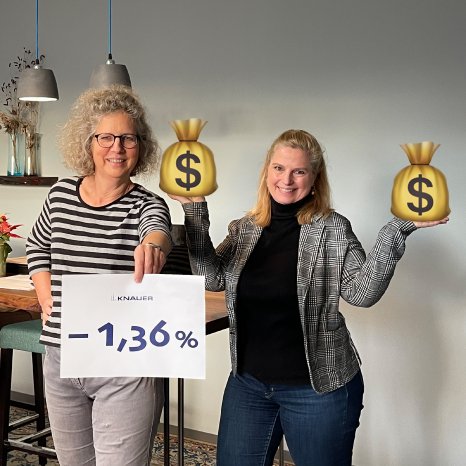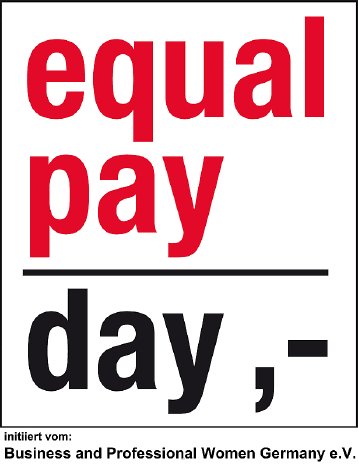This year KNAUER witnessed a small sensation, because according to the latest figures from the company's Equal Opportunities Officer, the wage gap in the classic sense has not only disappeared, but the women in the company now earn on average even 1.36% more than their male colleagues.
"This is the smallest unadjusted gender pay gap we have ever had in the company. When we calculated it last year, our women still earned 2.2% less than the men. It is clear that this figure will always fluctuate, as it also depends on the gender distribution among skilled workers and management positions. Our guideline is the zero mark, and we are closer to it than ever," says Managing Director Alexandra Knauer.
The Berlin-based laboratory equipment manufacturer KNAUER, whose high-tech instruments are used worldwide, has been committed to gender equality for years and has taken comprehensive measures to reduce the gender pay gap. These include transparent salary structures, programs for the advancement of women, and compliance with legal requirements on wage inequality.
The proportion of women in management positions in the family business is 50 percent. This is a high value for a technology company like KNAUER. A wage imbalance often arises in companies because women predominantly perform less well-paid jobs or part-time tasks - men, on the other hand, more often hold the well-paid management positions.
The Equal Opportunity Officer at KNAUER, Katharina Pohl, emphasizes: "We are proud that we have one of the smallest gender pay gaps in Germany. At the same time, we know that there is always room for improvement. We will continue to work to ensure fair pay and equal opportunities for women and men and also people of different backgrounds."
Managing Director Alexandra Knauer would like to motivate other entrepreneurs to address the issue, because according to her it is not only a good feeling as an entrepreneur to ensure equal opportunities and fair conditions, it is also good for the company’s work atmosphere and helps in the competitive job market.
"Improving pay equity in Germany from 23 percent in 2006 to 18 percent in 2021 is simply too slow. At this rate, Germany will need another 50 years to achieve equalization. I hereby call on those responsible to take Equal Pay Day on March 7, 2023 as an opportunity to calculate the wage gap of their own company in the future. That's how I started a few years ago," says Alexandra Knauer.
The date of the Equal Pay Day symbolically marks the general difference in earnings between women and men. If the current 18 percent is converted into days, women will work for 66 days from the beginning of the year - that is, until March 07, 2023 - with virtually no pay.
The action day for pay equity was first held in Germany in 2008 by the Business and Professional Women (BPW) Germany association.
The so-called unadjusted wage gap is easy to calculate: The average gross hourly wage for men minus the gross hourly wage for women is put in relation to the hourly wage of men. This ratio is expressed as a percentage.
KNAUER announced its 2019 wage gap for the first time in 2019. Here's how it has evolved: 2019: 3.2%; 2020: 2.6%; 2021: 2.2%; 2022: -1.36%.
The family-owned company KNAUER Wissenschaftliche Geräte GmbH develops and manufactures high-tech laboratory instruments, for example HPLC systems, that can be used to perform analyses or to purify for example, active pharmaceutical ingredients. The sales network extends over 70 countries. Alexandra Knauer, who manages the company together with Carsten Losch, attaches great importance to corporate responsibility both towards the 180 employees and towards the environment and society. More information about KNAUER at: www.knauer.net
More about the Equal Pay Day action day at: www.equalpayday.de



